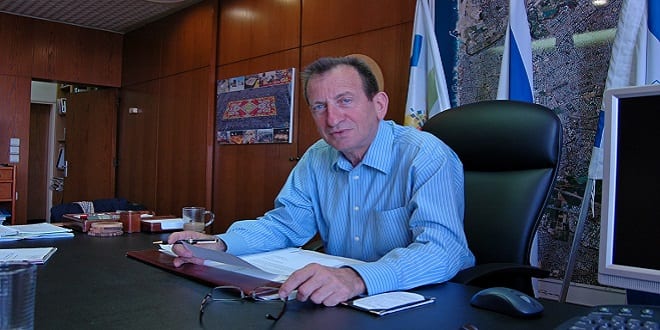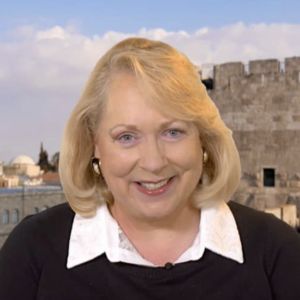The response of Tel Aviv Mayor Ron Huldai to the unfathomable death of a young couple in his city over the weekend is nothing short of a disgrace. When details emerged of the way in which 25-year-old childhood sweethearts Din Shoshani and Stav Harari lost their lives on Saturday, Israelis across the nation were shocked, horrified and in tears. All except for Huldai, that is, who was too busy defending himself to express any remorse.
The unfathomable tragedy struck when Shoshani and Harari left their apartment in Shchunat Hatikva—a poor neighborhood in the southern part of the city that has become increasingly attractive to students and struggling artists—and took the elevator to the underground garage, where their car was parked. They had moved into the brand-new building only a couple of months earlier, renting the “penthouse” on the top floor.
The stormy winter weather, characterized in Tel Aviv by spurts of heavy rain with lulls in between, was in full force that morning. Anyone who was unable to see the flooded streets from his or her window was treated to hourly reports of the freakish rise in water levels, and stories of cars and pedestrians being swept away in what looked like Canadian rapids running through the streets of the White City that never sleeps, as well as elsewhere in the country.
Shoshani and Harari must have been aware of the tempest. It was impossible not to hear the pounding of the rain and hail—at times as loud as rockets from Gaza. Perhaps the couple had been warned that the basement of their building was starting to be affected, and they were on the way to remove their vehicle before it got damaged. Or maybe they were headed to a Shabbat lunch.
Wherever the day was taking them, the elevator stopped as soon as it started, because of a sudden power outage caused by water that had seeped into the bowels of the building. Shoshani and Harari proceeded to bang on the walls of the elevator. Neighbors who heard them began phoning emergency services. But neither the police, nor the fire department nor the municipal hotline answered their frantic calls.
In the meantime, however, the elevator began to flood. Trapped in the pitch-dark, Shoshani and Harari drowned in the freezing, filthy water that crept up on them as they waited, in vain, for rescue.
By the time crews arrived on the scene—an hour-and-a-half after the first call for help was made—it was too late. All that was left was for the bodies of the young man and woman, just shy of their 26th birthdays, to be extricated from the elevator by divers.
To say that this was like the most terrifying scene in a horror movie would not do the incident justice. For the siblings, parents, grandparents and friends of the couple, it has been an unbearable nightmare—one from which they cannot waken. But even those who didn’t know Shoshani and Harari personally are shaken to the core by the thought of their cruel demise.
Naturally, everybody is asking how such a thing could have happened, insisting that some heads should roll as a result.
Why, for example, did the new building pass inspection if its drainage system and elevator mechanism were not functioning properly? Where were the emergency switchboard operators? How had the municipality not prepared for the storm when flooding happens every winter?
Which brings us to Huldai, who has served as Tel Aviv’s mayor since 1998.
Rather than arriving at the scene of what has come to be called the “elevator tragedy”—to listen to residents of the building and the block—Huldai took to the TV studios to laud his investment in infrastructure. Yes, the politician at the helm of the city in which the horrific drowning took place actually had the gall to boast about the area’s efficient drainage system.
Indeed, instead of going straight to the Shoshanis’ and Hararis’ homes to offer his comfort and support, Huldai opted for media interviews. His claim was that the weather was an aberration.
“In the course of a mere two hours, a whopping 20 percent of the country’s annual volume of rain fell,” he said. “This overloaded the system and created flooding … [It was] a one-off event that sometimes happens, like in a bathtub, when you unplug the stopper, it takes time for the water to go down the drain. The amount of water [in this case] was greater than the drainage ability. But then it began to recede and the city resumed normal activity.”
Almost as an afterthought, he added: “This was a difficult incident. I send condolences to the families. A terrible disaster happened here, but it has not yet been investigated. We cannot jump to conclusions by making populist statements on television.”
Populist statements on television? By whom? The overwrought neighbors who waited helplessly while Shoshani and Harari drowned without being able to save them?
No, Huldai was referring to remarks by rivals in other political parties and hostile journalists demanding that he resign. A pox on all of their houses for exploiting such a horrendous event to engage in a partisan sparring match.
Whether or not the mayor is at fault remains to be determined. But one thing is crystal-clear. The only appropriate reaction on his part at this moment is to mourn along with them, beg their forgiveness and launch a thorough investigation of the incident.
Thankfully, the latter is underway. Sadly, the former was late in coming, with Huldai waiting until Tuesday afternoon to pay a shiva call. Shame on him.
Reprinted with author’s permission from Jewish News Syndicate






